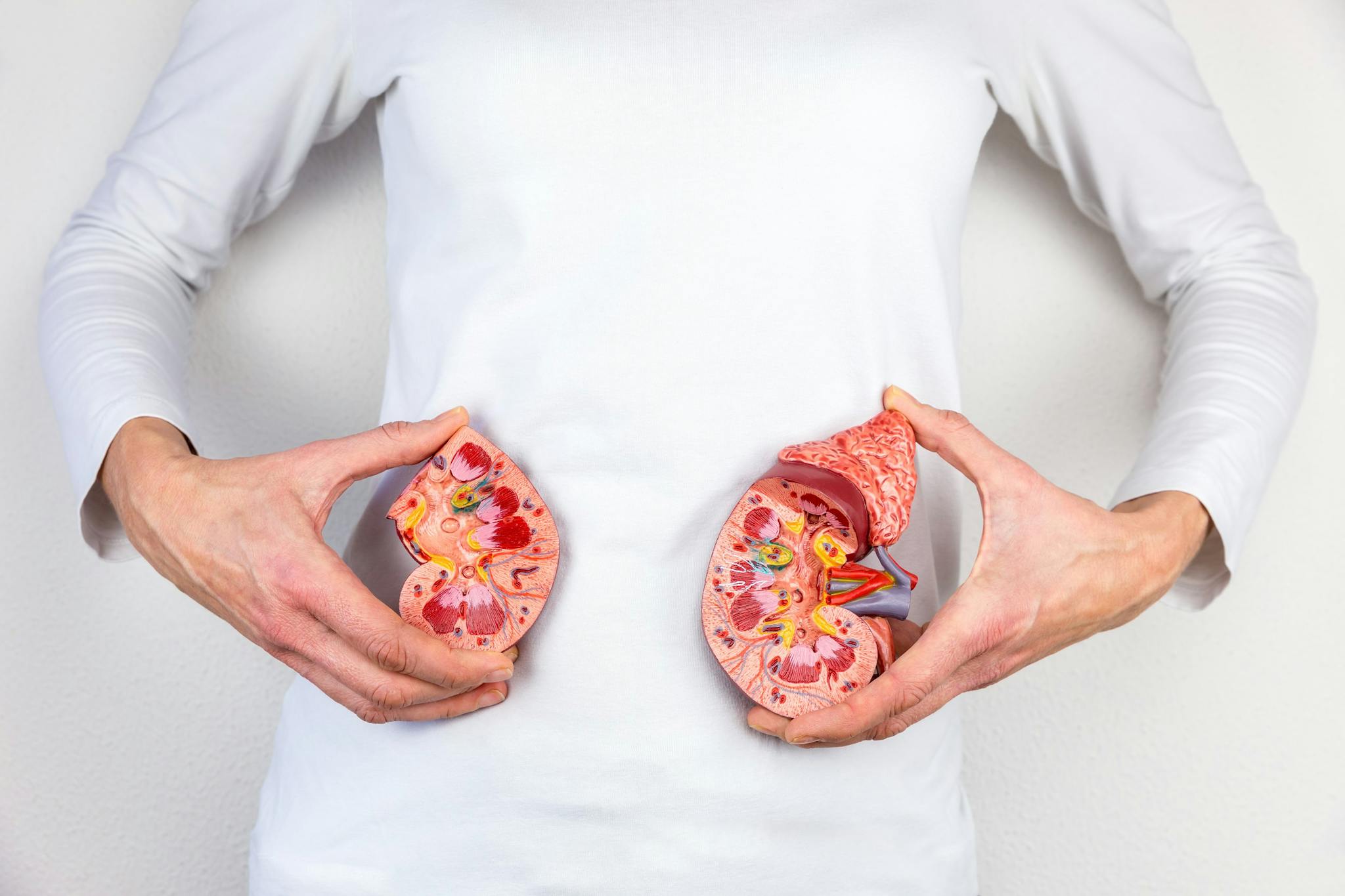
April 9, 2024
The Health Benefits of Stress Management
- Behavioral Health
October 20, 2017 | Family Medicine

Also called renal lithiasis or nephrolithiasis, kidney stones are hard deposits made of minerals and salts that form inside the kidneys. Kidney stones can be caused by a variety of factors, and they can affect any part of the urinary tract. Passing kidney stones can be extremely painful but usually doesn’t cause permanent damage. In some situations, however, further treatments or surgery may be needed.
Symptoms
In many cases, a kidney stone won’t cause symptoms until it moves around in the kidney or passes into the ureter (the tube that connects the kidney and the bladder). At this point, symptoms or signs may include:
Pain from a kidney stone may change or shift as the stone moves through the urinary tract. If any of these symptoms worry you, or if pain is so severe that you’re uncomfortable, nauseous or vomiting, or have pain with fever and chills, seek medical attention right away. Also seek immediate medical attention if you have blood in your urine or have significant difficulty passing urine.
Types of Kidney Stones
Knowing the type of kidney stone you have can give clues to the cause of the stone and how to prevent future stones. If you pass one, try to save it so you can bring it to the doctor for analysis. Types of kidney stones include:
Causes and Risk Factors
Kidney stones often don’t have a single cause. They’re formed when the urine contains more crystal-forming substances (calcium, oxalate and uric acid) than your body is able to dilute successfully. The urine may also lack substances to prevent crystals from sticking to each other, and these factors combine to create a perfect environment for kidney stones.
There are several factors that can raise your risk of kidney stones:
Diagnosis and Treatment
Kidney stones may be diagnosed using one of several possible tests and procedures. Treatment varies depending on the type, cause, and size of the stone. Small stones with limited symptoms can generally be treated with non-invasive methods:
For larger stones or stones that cause symptoms, conservative measure might not be enough. Other methods might include:
Prevention
Prevention of kidney stones comes down to lifestyle changes and medications. Drinking water and making changes to the diet as recommended by your doctor based on the causes of your kidney stones is vital, and your doctor may also prescribe medications based on the kind of stones you have.
If you have symptoms of kidney stones or are at risk, your doctor can provide recommendations for prevention and treatment.
Our providers take time to listen and communicate clearly with each patient, and our professional and courteous staff provides quality, personalized care for all of our patients’ general health and medical needs. We specialize in weight control, depression management, skin care, hormone replacement, cardiac conditions and cholesterol management. We strive to provide our patients and their families with quality healthcare services and respect their right to participate in all treatment decisions.
Sources:
“Kidney stones.” The Mayo Clinic. http://www.mayoclinic.org/diseases-conditions/kidney-stones/home/ovc-20319559
“Kidney Stones Health Center.” WebMD. http://www.webmd.com/kidney-stones/default.htm

WRITTEN BY:
The Live Better Team


April 9, 2024

March 22, 2024

February 12, 2024

February 6, 2024
This information is not intended to replace the advice of a medical professional. You should always consult your doctor before making decisions about your health.